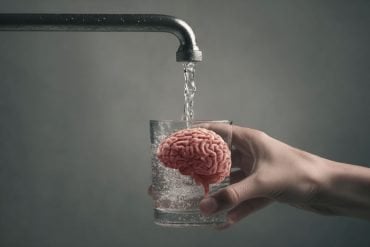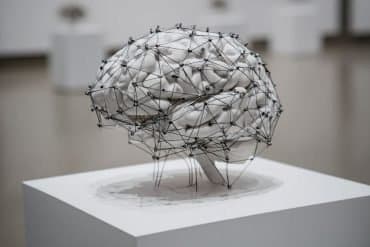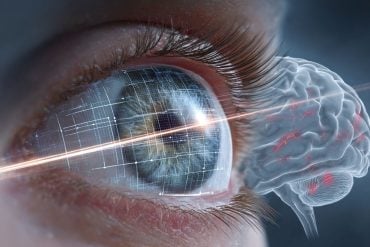Summary: New research highlights how smartphones are transforming memory science by capturing real-world data on sleep, emotion, and daily experiences. Studies show that replaying memories before sleep, experiencing novel events, and feeling positive emotions can all strengthen autobiographical memory.
Apps like HippoCamera reveal that even dreaming about past events improves recall, while diverse daily experiences enhance the vividness of surrounding memories. These findings are helping scientists understand how memory works outside the lab and offer insights into boosting memory in everyday life.
Key Facts:
- Sleep Strengthens Memory: Memories reviewed before sleep or dreamt about are more vivid and easier to recall.
- Novelty Boosts Recall: Experiencing something new enhances memory for both novel and routine events.
- Smartphone Science: Real-world memory tracking via smartphone apps provides rich, naturalistic data.
Source: Cognitive Neuroscience Society
A memory is not a straight line from one point to another, even if we sometimes think of them like linear stories.
This key insight that cognitive neuroscientists have known for many years is now guiding a new type of research—to explore not only how memories evolve over time but also how they can be strengthened or changed.
Assisting researchers with this new exploration is a powerful tool: smartphones.

“Smartphones are an incredible tool for understanding patterns of feelings, behavior, and experiences in daily life, and how different types of everyday events stay with us in memory,” says Elizabeth Goldfarb of Yale University, who is chairing a session at the annual meeting of the Cognitive Neuroscience Society (CNS) about the use of smartphones in capturing naturalistic data about memory.
“Real experiences have so much more salience and self-relevance than anything I can generate in the lab, and being able to quantify how people remember those events is very exciting.”
Researchers will be sharing new smartphone-based studies that suggest how a range of actions people take—from trying something new, to replaying memories before sleep, to feeling positive emotions—can help them build stronger and more detailed memories.
“These talks examine both how researchers can use these data to capture how factors like emotion, novelty, and dreams transform memories, and suggest ways that people can strengthen their own memories,” Goldfarb says.
Memory replay and sleep
Morgan Barense’s current work using smartphones to capture real-time data on memory, sleep, and dreams was inspired by a serendipitous discovery in a study that wasn’t designed to look at sleep and memory at all.
“We found that the timing of when someone first reviews material relative to sleep had an enormous effect on how well they later remembered it,” says Barense of the University of Toronto, who will be presenting new work at the CNS meeting.
“The effect was so striking that I initially didn’t believe it. That discovery made me realize that sleep is something all memory scientists should be paying close attention to.”
Now working on studies designed by graduate student Nelly Matorina, Barense and her team are investigating a fundamental question using a smartphone app they developed that is called HippoCamera: How does a single night of sleep influence our memory for the events that occurred the day before? For example, if you dream about a dinner party from the night before, does that influence your memory for that event?
Using HippoCamera, participants recorded two events per day—one in the morning and one in the evening—over two weeks. The researchers then tested their memories after 12-hour delays that either included a night of sleep or a day spent awake.
Their pre-press results showed that “memories following sleep were more vivid, felt temporally closer, and were easier to recall, suggesting that a single night of sleep helps preserve the richness of autobiographical memory,” Barense says.
The researchers also asked participants to record their dreams upon waking and indicate whether they were related to events captured with HippoCamera the previous evening.
“Interestingly, memories that were dreamt about were also rated as feeling temporally closer and were more likely to be recalled from a first-person perspective,” she says.
In addition to these short-term effects, the team tested the same memories one year later to ask how they changed over time, including the connection to the memories’ locations.
“Our pattern of results suggests that the link between an event and its location may initially weaken after a night’s sleep to allow for memory reorganization, but over the long term, a year later, our memory is strongly connected to where it took place,” Matorina says.
“Real-world data collection introduces variability that is difficult to control, and tracking sleep and memory over time requires careful methodological design,” Barense says.
“However, these challenges are also what make smartphone-based research so promising—it allows us to move beyond artificial settings and study memory as it naturally unfolds in daily life.”
By illuminating the crucial role of sleep and dreaming in memory, Barense and her team hope to gain windows into memory plasticity—better understanding the connection between sleep and our waking experiences and laying the groundwork for new ways to boost memory.
In future work, in collaboration with Ken Paller and his lab at Northwestern University, her team will investigate if it is possible to enhance real-world memory retention during sleep.
They will be integrating HippoCamera with at-home targeted memory reactivation, which works by reintroducing memory-related cues—such as sounds associated with an event—during specific sleep stages.
“While our previous work has shown that HippoCamera strengthens autobiographical memory in older adults, we believe that incorporating sleep-based memory reactivation will further amplify its benefits,” Barense says.
Memory vividness and novelty
Lila Davachi’s smartphone-based work on memory was motivated by the cognitive and emotional impacts of the pandemic that came up in almost every conversation she and the research team had during the COVID-19 shutdown.
“The lab had already published several papers on the impact of context representations on associative memory and here we all were sitting in our homes, meeting on Zoom, with very little change in our contexts,” says Davachi of Columbia University.
“It was natural to wonder how this was going to impact our long-term memories and, perhaps by consequence, our mental health.”
Adapting a well-validated data collection method from social psychology, Davachi and her team ran a “daily diary” study that sampled real-world experiences using a smartphone app.
They asked study participants to report daily events over a two-week period, and then after a two-week delay, the researchers asked them to recall the autobiographical experiences.
On each day and for each event, participants were asked to categorize each event as “novel,” “routine,” or “periodic.” as well as answer several other questions about the events and their days.
Using artificial intelligence (AI) to help analyze the large number of subjective events recorded, the team found that novel autobiographical events were later reported with greater vividness and detail compared to both routine and periodic events.
“Perhaps more exciting, we found that routine and periodic events that happened on the same day as a novel event were also better remembered than routine and periodic events that took place on days with less novelty,” Davachi explains.
“This suggests a penumbra-like effect of novelty.”
That novelty improves memory for not only a novel event but also for adjacent events throughout the day suggests that “experiential diversity” is an important factor for forming lasting memories—and it’s something that people might be able to control.
The work, Davachi says, is bringing researchers closer to understanding how and if laboratory studies of memory and their findings translate to real-world autobiographical experiences.
“Being able to sample and record data from individuals in the real world, along with the use of AI-based large language models to help us analyze large amounts of complex data, is a solid stepping stone,” she says.
Memory emotions and alcohol
For all memory studies, a major challenge is quantifying memory accuracy, says Goldfarb of Yale.
“If we are asking someone to tell us about an event that happened years ago, we can measure whether they tell us the same details consistently, but we don’t know if those details are ‘correct’ because we were not there when the event occurred,” she says.
“By using smartphone technology, we can effectively be there with the participant while the event is happening.”
For Goldfarb’s work, these techniques are opening doors to answering new questions, including how people remember stressful or emotional events. In one study she will be presenting at the CNS conference, Goldfarb and her team are looking at memories and emotions in the context of substance abuse.
Memory is important for addiction, as, for example, someone can’t relapse in a place where they used to drink if they have no memory of drinking there.
“Yet we know very little about what people remember about their time drinking that drives this behavior,” she explains.
With smartphones, the researchers can now share what they remember about their real experiences with alcohol and compare that to previous lab-based studies.
“We’re uncovering some similarities with what we measure in the lab, which is great for establishing ecological validity,” she says.
But by measuring the memories that could directly inform real-life substance use, they are also capturing new data, such as how memories for positive and negative experiences are organized differently.
“We are seeing that people are more likely to link different parts of a positive event together in memory,” she says.
“As a researcher, the effects of real emotions are so much stronger than what we can create in the lab.”
Taken together, Goldfarb says, the research being presented at CNS 2025—about novelty, replay, and emotion—are a leap forward in helping people build stronger and more detailed memories.
About this sleep, emotion, and memory research news
Author: Lisa M.P. Munoz
Source: Cognitive Neuroscience Society
Contact: Lisa M.P. Munoz – Cognitive Neuroscience Society
Image: The image is credited to Neuroscience News
Original Research: The findings will be presented at the 32nd Meeting of the Cognitive Neuroscience Society






